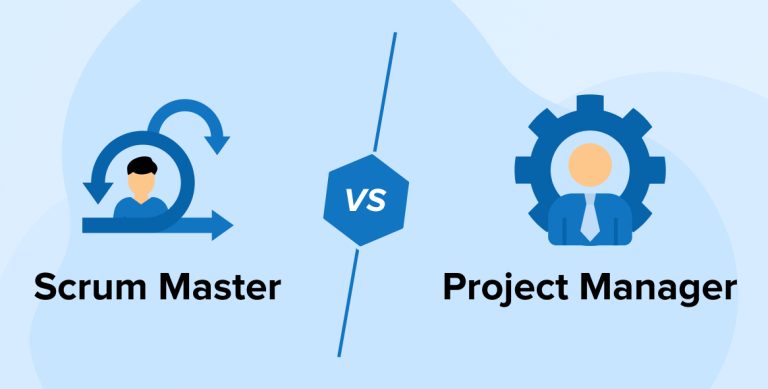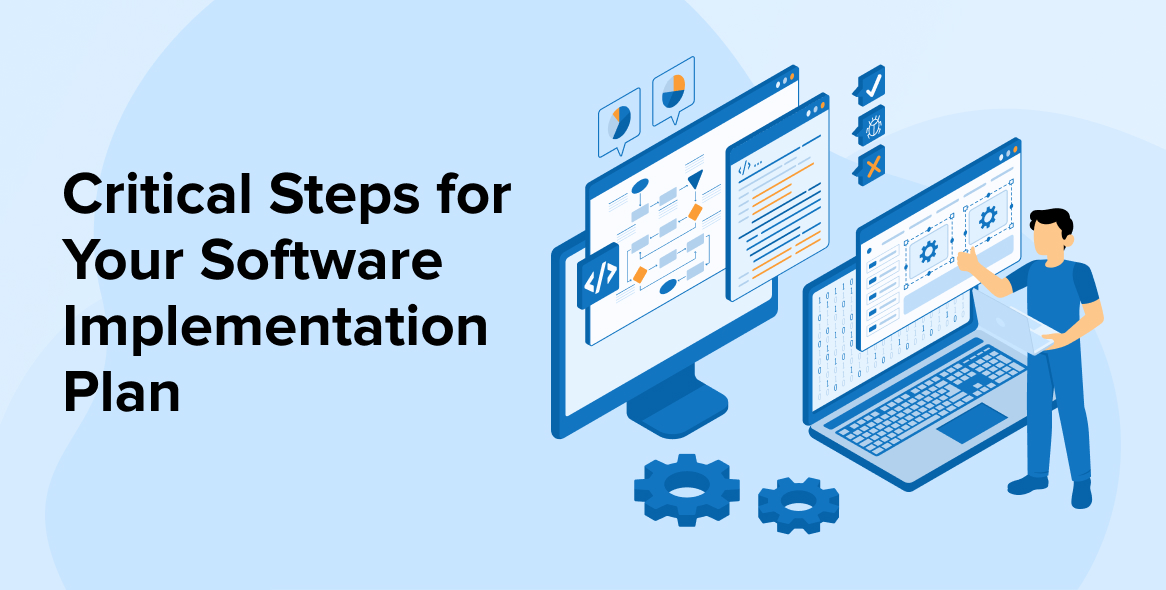
Isn’t this the most talked about catchphrase when it comes to project management? There is a constant juggle between the scrum master role and the Agile project manager role who one should contact. Most of you might be struggling to understand what difference both these project management professional roles bring to an organization. This is not just a job role but it is a strategic choice of how each one will benefit your business in the long term. scrum master vs project manager? In this blog, we will walk you through the different facades of scrum master and agile project manager that may sound similar as well as different. This will help businesses decide on one of the types that can boost the customized software development process.
To start with, let us understand these terms from a grassroots level.
1. What is Scrum?
The Scrum word has been derived from the Ruby game concept where the players can restart the whole game and take over possession anytime. The same concept is applied in the Scrum process. “Scrum is a lightweight framework used by enterprises to develop value from complex and cumbersome applications. It is a type of agile framework that is centered and takes up a continuous improvement approach which is based on agile principles and agile methodology.”
2. What is a Scrum Master?
Definition of scrum master: “A scrum master is a designated role that demands the person to look after all the scrum processes taking place in the Scrum framework.”
Often ambiguously used between Product Owners, Project Owners, Product Managers, and project managers, The scrum master is a completely different role. scrum master responsibilities also differ from these project management roles. As per the name, it is someone who masters the specific framework of Scrum. As we know, Scrum is not a method or tool but a framework that brings solutions to complex business challenges and ensures high business value. As defined in the below Quora answer, scrum master is someone who collects analytics, offers feedback, and helps the program management and development team manage things while working with agile methodology. Take a look at the explanation given by Quora user.

With a knack for scrum principles and Scrum theory, the scrum master must follow the rule book to deliver higher business value. It operates on agile methodology and adaptive software development methods to streamline the agile process and accelerate productivity and quality. scrum master serves and coaches scrum teams to collaborate and guides them to follow Scrum principles to increase productivity.
The certified scrum master has the responsibility to assist people in understanding and achieving Scrum principles, rules, values, and scrum practices. The scrum master is also popularly called servant-leader as it helps the Scrum Teammates to collaborate and interact easily.
3. Characteristics of a Great Scrum Master
Some of the major characteristics of a certified scrum master are:
3.1 Deep Understanding of Agile and Scrum
The scrum master must have in-depth knowledge and experience of agile practices and the Scrum framework. They should be able to leverage their expertise in scrum accountabilities, events, and artifacts to ensure a seamless execution that could help the scrum team deliver maximum value in every sprint.
3.2 Facilitation and Conflict Resolution
It is the responsibility of the scrum master to see to it that the project management training and team meetings are outcome-oriented, engaging, and purposeful. Scrum masters must also be adept at resolving conflicts within project teams, or with stakeholders.
3.3 Ability to Coach and Mentor
A scrum master is a coach and a mentor to the project team. They have to offer guidance, empower the teams to be high-performing and self-organizing, and encourage the individuals to take accountability. This helps them deliver extraordinary outcomes.
3.4 Strong Problem-Solving Skills
During development, setbacks and roadblocks have been introduced previously. The exemplary problem-solving skills of a scrum master help the team identify and fix the issues. Additionally, they encourage the team to be proactive about problem-solving which helps foster a culture of innovation.
3.5 Ability to Manage Complexity
Software development is a complex undertaking. There are so many dependencies and variables to keep track of. It falls upon the scrum master to break down these complexities into manageable sprints and assign them to the team. They ensure the team delivers incremental value through those sprints.
4. Role and Responsibilities of a Scrum Master
The scrum master has to bear many responsibilities when it comes to a specific domain of work-Scrum. scrum master plays the role of a facilitator or agile coach who empowers the team and plans for scrum implementation in the organization. Since there are product owners, and software developers involved in this entire scrum process, this makes the scrum project management more attentive and detailed. Let’s dive deep into the roles and responsibilities of a scrum master.
- The scrum master helps product owners manage the product backlogs with the help of agile methodologies.
- The scrum master role demands communication and collaboration seamlessly with the development team to get every update of the development process.
- Scrum masters should offer hassle-free events.
- Eliminate roadblocks to help developers amend changes and monitor the overall performance of the scrum teams.
- Based on scrum rules and principles, The scrum master leads a scrum team and facilitates some of the scrum events, such as the sprint planning, and sprint review.
- Adopt the Iterative scrum method and follow the blueprint of implementation based on the same scrum rules.
- The scrum master has to align the entire development team on the same page. The scrum team adopts and adheres to the scrum framework that maximizes the value generated from the implementation.
The debate around scrum master is surrounded by the confusion that needs to be confronted. But we know that Scrum works on a predefined set of rules but a definite framework. But what about the project manager, what do his responsibilities encompass? The sphere of responsibilities isn’t limited to just one project of a team, it is a comprehensive role that demands multiple responsibilities. Let us now dive deep into the profile of a project manager.
5. What a Scrum Master Doesn’t Do?
After discussing the scrum master’s roles and responsibilities, let’s go through a few things that he shouldn’t do while communicating and managing.
- Creation and management of the business case.
- Creation and management of project plans, like Project Initiation, Planning, and Gantt Charts.
- Measuring and tracking scrum projects & team members’ progress.
- Track Scrum teams’ performance and HR management processes.
- Manage project scope & results.
- Manage project changes and their change requests.
- No role in the business requirements like product backlog.
6. What is a Project Manager?

The project manager’s role is inclusive of a wide spectrum of duties where he/she has to execute his project management expertise and knowledge to make the project successful. In the real world, the roles and responsibilities of an agile project manager are not limited to definite rules on paper but it goes far beyond other things. This is because a project manager has to also handle tasks like project scope specification, costing, scheduling, and developers working on that project.
The role of a project manager starts with the initiation of the project, and then there is constant modification in the management starting from ideation, planning, execution, monitoring, deployment, and final maintenance. It adapts the project management approach wherein the whole team is under the project management portfolio. The team is inclusive of developers, testers, business analysts, a business development team, and a project support team.
Starting from project initiation, the scope of requirements, time management, schedules, quality Risk management, and much more. Project managers are sometimes responsible for project support and team management.
The project managers focus on Project Initiation, Planning, Execution, Monitoring, and Closure. In the Project Initiation phase, the development teams create a business case that can justify the needs of the client and study it to prove that the case can be executed in a predefined time and cost.
6.1 Project Planning Process
The Project Planning process starts after the approval of the business case. Here proper guidance is given to the software development teams about the execution and controlling phase of the project.
After planning comes, the Project Execution phase. The software developers start working on the plan and try to develop a product as expected. The project gets completed here and then it is delivered to the client or stakeholders.
Then, there is the Project Monitoring Phase. Here the project development teams ensure the quality of the end product and check whether it is compromised or not. If the quality of the end product is not compromised then the clients get a quality assurance report.
Project Closure is the last stage in the project management process. After the project is approved, the resources are released to the clients, the development teams complete the project documentation, and after everything is signed off, the project is officially closed.
7. Characteristics of a Project Manager
Some of the major characteristics of a formal project manager are:
7.1 Team-Building Skills
A project manager has to bring together a good team and encourage them towards a common purpose. They have to keep this team working as a single unit and keep motivating them for the successful completion of the project.
7.2 Delegation Skills
A project manager must be capable of assessing the project management skills of every individual in the team and then assigning them relevant tasks. The PM also oversees that the assigned tasks are completed effectively within the schedules without micromanaging the team members.
7.3 Problem-Solving Skills
Good project managers are skilled at handling problems effectively at any stage of the project. They leverage their project management experience, expertise, and the knowledge of their team members to craft an effective response to counter the problems arising when delivering the project.
7.4 Managing the Project Life Cycle
A software development project consists of many stages. In addition to planning and executing those stages, project management now also includes the organization’s strategic growth management and portfolio management. Project managers must be skilled at managing various aspects of the project lifecycle.
7.5 Achieving the Project Benefits
The project is only believed to be successful when the project deliverables start offering benefits. The project manager ensures that the team is not just trying to finish the project but is focused on delivering the project benefits on time and within budget.
8. Project Manager Roles and Responsibilities
Other than accessing and preparing oneself for the project development and management challenges, the role of a project manager has no boundaries. The primary responsibility of a program manager is to serve the team and stakeholders. There is a guide to the Project Management Body of Knowledge called PMBOK Guide that helps project managers to understand it from the ground level. The project Manager, unlike the scrum master, is responsible for the performance of various project teams. Let’s dive deep into the roles and responsibilities of the project Manager.
- Business and team formation and management.
- Managing demands and modifications (to Scale-up, Time, and Budget).
- Managing the projects of the organization.
- Creation and maintenance of the project plan, including the initiation paper for the project, project scope, the project schedule, project progress, Gantt charts, and others.
- Tracking and evaluating success in the projects/teams.
- Efficiency monitoring.
- Project risk identification, monitoring, and management.
- Delivering project administrative services.
- Project monitoring and evaluation that boosts overall project team dynamics.
- Advice on project management tools and configurations.
- Administering the Change Control Approach’s configuration management procedures.
9. What a Project Manager Doesn’t Do?
After understanding the roles and responsibilities of the project manager, let’s discuss the things he shouldn’t do while managing the projects and their liabilities.
- Accountable for a project’s success or failure.
- Project managers don’t have to provide undivided direction to the project.
- Provide sustained and visible support to other project managers.
- Provide authorized funds and resources to the project.
- Make sure that the project solution meets the requirements of the users.
- Project managers don’t have to supply the benefits information of the project board.
- Make communication easy between the project manager and users.
10. Common Characteristics of Scrum Master and Project Manager
When it comes to the job description and skill set of the scrum master and project manager, there are many common skills and characteristics they both share. Some of these common traits of a scrum master and project manager are –
10.1 Leadership Skills
Though the leadership type between the project manager and scrum master can be different but having a leadership skill set is very important in project management. The scrum masters are like a Servant Leader who has to lead and manage the implementation (Scrum Framework) and the growth of the organization. On the other hand, the project manager is in charge of everything that goes around the project. He has to stand as a great leader with excellent managerial skills.
The project managers oversee and motivate the team members, lead developers to the right path for the project process, and more. The project manager works in a dictative style while the scrum master works in a much more liberal manner. But their work is similar, i.e. to lead the team.
10.2 Communication Skills
When it comes to communication skills, both scrum master and project manager should be able to communicate very well with the stakeholders, customers, team members, management, suppliers, users, and other staff members of the organization. If any of them lacks communication skills then it can affect the workflow and the project development process.
10.3 Organizational Skills
Organizational skills mean being well-organized with your work and your private life. In short, balancing work-life is very important for both scrum masters and project managers as they are not only responsible for their tasks but also their team members.
11. Scrum Master Vs Project Manager – Comparing Various Parameters
This comparison will help you to understand the current ongoing trend.
| Scrum Master | Project Manager |
|---|---|
| scrum master(SM) primarily focuses on the scrum team and the team members. | The Project Manager(PM) primarily focuses on the entire project of the client. |
| The scrum master has to only manage one team at a time. | The Project Manager has to manage various projects and align them with the business objectives to make them a success. |
| SM is like a Servant Leader. He has to work to make the team responsible for the project. | The PM is like a Leader of the team. He has a single point of view and that is to have an objective of managing the entire project. |
| The focus of scrum master is to work on projects that are IT-specific or related to similar industries. | The main focus of the Project Manager is to work on several projects from different business industries. |
| The role of the scrum master is to be an effective and efficient promoter, activator, supporter, tutor, and minder to the development professionals. | The role of the project manager is to be an efficient and effective decision-maker, motivator, interpreter, manager, and negotiator to the organization. |
| Scrum Master certifications of CSPO/CSM from the Scrum Alliance are required. | Project manager certification of PMP is required. |
12. Conclusion
Through this blog, we hope that we have tried to give you an answer to your million-dollar question of who will perform best for your project. We all know that the Agile and Scrum methods will be ideal choices in current-day scenarios. The key difference is that the project manager owns a project and is solely responsible for its success or failure. But for companies willing to hire a role that covers almost all types of business responsibilities then PM is an ideal choice. Your business can harness the power of its technical and theoretical skills and apply them to your projects. Your scrum master can take over the duties of a project Manager and play both roles. Now that you know how both of them function, decide which one will work best for your business and make a decision wisely.






What I learned from this article is that project manager is more of a leadership role on the other hand scrum master includes more of a facilitation and coaching role. This blog definitely has cleared my misconception that the project manager role can be transferred to scrum master but both have unique duties.
Yes, It is important to recognize the differences between the two, Identify where some tasks may overlap, and recognize how they complement one another in large-scale projects.